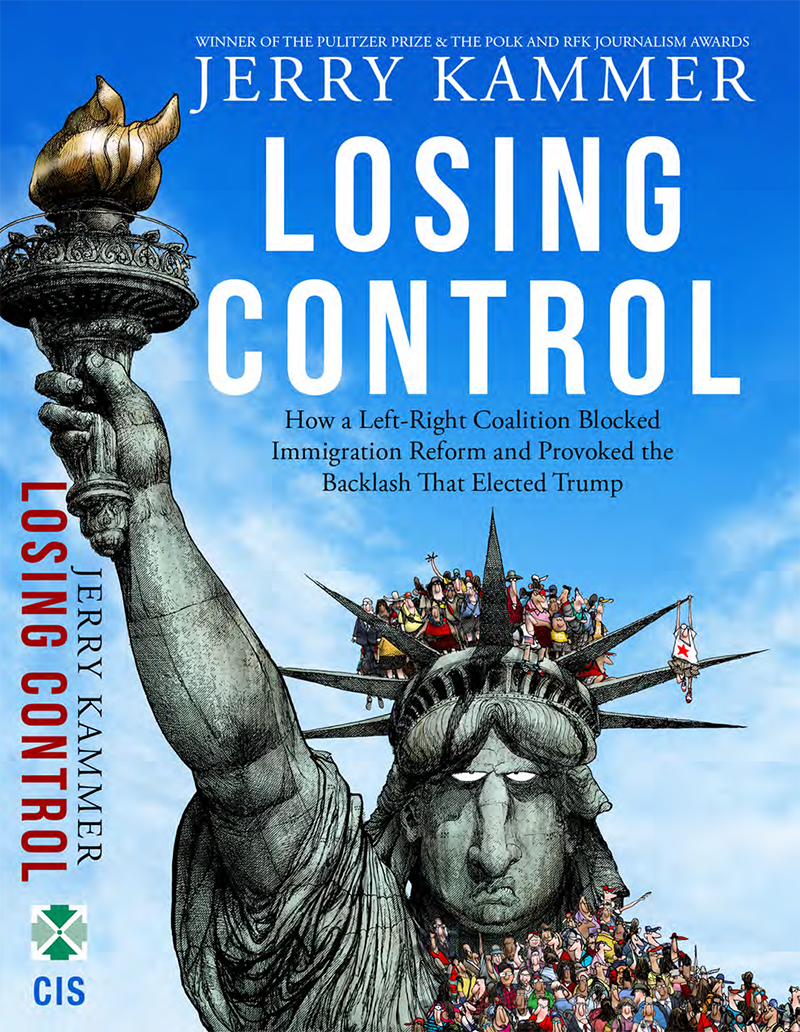Podcast
Listen to "Why Does Immigration Reform Legislation Fail?" on Spreaker.
Summary

Since President Reagan signed into law the 1986 Immigration Reform and Control Act (IRCA), five presidents have supported legislation containing an amnesty for a large portion of the illegal immigrant population. All of these pieces of legislation traded amnesty for enforcement, except the most recent, the Biden-Menendez immigration bill (U.S. Citizenship Act of 2021). This bill would have legalized virtually all illegal immigrants in the United States, but actually weakened enforcement. Why have all these bills failed? Is there hope for a future immigration compromise?
In this week’s episode of Parsing Immigration Policy, Jerry Kammer, a Pulitzer Prize-winning reporter and a Senior Research Fellow for the Center for Immigration Studies, explains how a left-right coalition of immigrant-rights groups, ethnic activists, business interests, and civil libertarians thwarted the immigration reform law enacted by Congress in 1986. The amnesty of millions of illegal immigrants happened right away, but the promise to enforce immigration law, particularly worksite enforcement, was quickly abandoned. This led to the distrust that we have today, which causes many legislators and members of the public to support only immigration legislation devoted to enforcement of the laws.
Kammer, author of Losing Control: How a Left-Right Coalition Blocked Immigration Reform and Provoked the Backlash That Elected Trump, walks the listener through the passage of IRCA; multiple administrations and their attempts to pass immigration legislation; the important institutions, especially liberal institutions, and politicians who have shifted their positions on enforcement; and why enforcement, particularly at the worksite, is so important to controlling illegal immigration and protecting the American worker.
In his closing commentary, Mark Krikorian, the Center’s executive director and host of Parsing Immigration Policy, describes his approach to restoring political stability in immigration policy. The solution starts with a departure from the IRCA approach of granting an amnesty up front for a promise of future enforcement, and includes a rational limit on legal immigration.
Host
Mark Krikorian is the Executive Director of the Center for Immigration Studies.
Guest
Jerry Kammer is a Senior Research Fellow for the Center for Immigration Studies.
Related
Immigration Newsmaker: Jerry Kammer Discusses His New Book with The Atlantic’s David Frum
What Happened to Worksite Enforcement
Three Decades of Failed Reform: Immigration Politics and the Collapse of Worksite Enforcement
Biden’s Radical Immigration Proposal
Follow
Follow Parsing Immigration Policy on Ricochet, Apple Podcasts, Amazon Music, Spotify, Stitcher, Google Podcasts or use the podcast's RSS Feed.
Intro Montage
Voices in the opening montage:
- Sen. Barack Obama at a 2005 press conference.
- Sen. John McCain in a 2010 election ad.
- President Lyndon Johnson, upon signing the 1965 Immigration Act.
- Booker T. Washington, reading in 1908 from his 1895 Atlanta Exposition speech.
- Laraine Newman as a "Conehead" on SNL in 1977.
- Hillary Clinton in a 2003 radio interview.
- Cesar Chavez in a 1974 interview.
- House Speaker Nancy Pelosi speaking to reporters in 2019.
- Prof. George Borjas in a 2016 C-SPAN appearance.
- Sen. Jeff Sessions in 2008 comments on the Senate floor.
- Charlton Heston in "Planet of the Apes".
